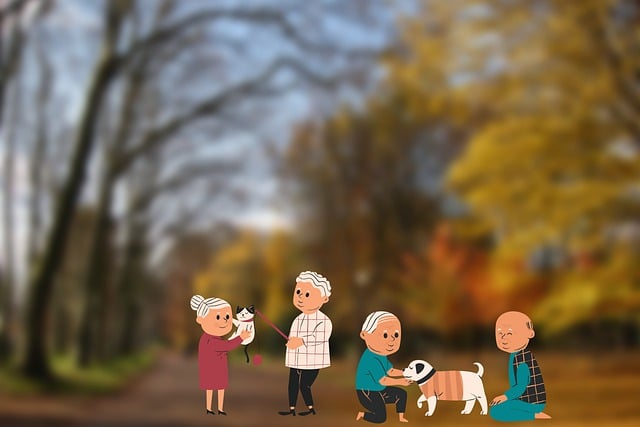In Oregon, grandparental rights are legally protected, ensuring grandparents can maintain significant relationships with their grandchildren. Understanding these rights involves familiarizing oneself with state laws and seeking guidance from the Oregon Legal Support Organization. Legal advocacy helps navigate court proceedings where a judge determines visitation based on the child's best interests. Key terms include protecting grandparental rights in Oregon, legal protection, Oregon legal support, understanding rights, navigating protections, and legal advocacy for grandparental connections.
“In Oregon, protecting grandparental rights is a crucial aspect of maintaining strong family connections. This comprehensive guide delves into the intricate web of legal protections available to grandparents, offering vital insights for those seeking to preserve their relationships with their grandchildren. From understanding the definition and importance of grandparental rights to navigating the state’s legal system and finding support through non-profit organizations, this article equips readers with essential knowledge.
We explore practical strategies, including effective communication, building a robust case, and long-term plans, ensuring grandparents can protect their rights and maintain meaningful roles in their grandchildren’s lives.”
- Understanding Grandparental Rights in Oregon
- – Definition and importance of grandparental rights
- – Legal framework surrounding parental rights and their impact on grandparents
- Navigating the Oregon Legal System for Grandparental Rights Protection
Understanding Grandparental Rights in Oregon

In Oregon, grandparental rights are recognized and protected under the law, ensuring a significant role for grandparents in their grandchildren’s lives. Understanding these rights is crucial for families navigating complex family dynamics. Grandparents have the legal right to visit, interact, and maintain a relationship with their grandchildren, subject to the consent of the parents or legal guardians. This means that while parents have primary custody, grandparents can seek court-ordered visitation and access under specific circumstances.
Navigating grandparental rights protection in Oregon involves familiarizing oneself with state laws and regulations. The Oregon Legal Support Organization provides resources and guidance for families seeking to protect or exercise their grandparental rights. Legal advocacy is available to ensure that grandparents’ rights are upheld and to help them understand their options, especially when facing challenges or opposition from parents or other family members. This process involves court proceedings, where a judge considers the best interests of the child and determines appropriate visitation arrangements.
– Definition and importance of grandparental rights

Grandparental rights refer to the legal and emotional connection between grandparents and their grandchildren. Protecting these rights is crucial as it ensures that children have access to their extended family, fostering a sense of belonging and stability. In Oregon, grandparental rights are recognized and afforded legal protection under specific circumstances, offering both support and guidance for families navigating these relationships. Understanding the framework within which these rights operate is essential for all concerned.
Navigating grandparental rights protection in Oregon involves familiarizing oneself with state laws that govern visitation, custody, and access. The legal system provides a structured approach to ensuring that grandparents’ roles are respected and upheld, especially when families face challenging situations or changes in circumstances. Oregon’s legal support for grandparental rights includes advocacy services that empower grandparents to understand their entitlements and take appropriate actions to safeguard these bonds with their grandchildren.
– Legal framework surrounding parental rights and their impact on grandparents

In Oregon, the legal framework surrounding parental rights significantly impacts grandparents’ ability to maintain relationships with their grandchildren. The state’s laws prioritize the welfare and best interests of children, which can sometimes create complexities for grandparental involvement. Understanding these legal protections is crucial for grandparents seeking to protect their rights. Oregon has specific statutes that address visitation, custody, and parenting time for grandparents, offering a framework for navigating these matters.
Grandparental rights in Oregon are not automatically granted but must be established through legal processes. Legal support and advocacy are essential tools for grandparents aiming to secure and maintain their relationships with their grandchildren. Navigating the complex legal system can be challenging, which is why seeking guidance from professionals who specialize in family law is recommended. This ensures that grandparents’ rights are protected under Oregon’s legal framework while fostering a healthy environment for intergenerational connections.
Navigating the Oregon Legal System for Grandparental Rights Protection

Navigating the Oregon Legal System for Grandparental Rights Protection
Understanding the Oregon legal framework is essential when seeking to protect grandparental rights. The state has specific laws and procedures in place to ensure family relationships are preserved and that grandparents have a voice in their grandchildren’s lives. One key aspect is recognizing the legal terminology and processes involved, such as custody hearings, visitation rights, and petitioning for legal guardianship. These can be complex matters, but seeking Oregon legal support for grandparental rights ensures that all necessary steps are taken correctly.
Grandparents considering their options should consult with attorneys specializing in family law. Legal advocacy is crucial when navigating the system, as it provides guidance tailored to individual circumstances. It helps ensure that grandparents’ rights are asserted effectively and that any legal documents or petitions are prepared accurately. This process allows for a stronger case to be presented in court, ultimately increasing the chances of a favorable outcome.






